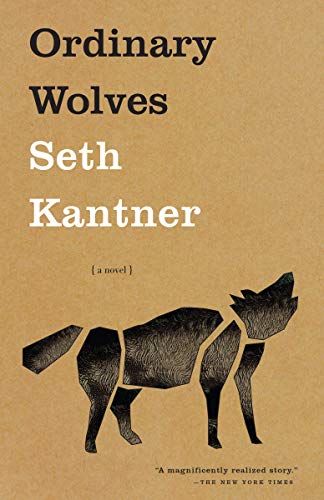
Ordinary Wolves: A Novel by Seth Kantner offers an extraordinary look at life in Alaska from the viewpoint of a white boy who longs to be native.
Cutuk Hawcley was born and raised in the Arctic. Before he was born, his parents moved to Alaska, built a sod igloo and subsisted in the wilderness. His father earned a living by hunting, trading, and selling his paintings. His mother grew weary of the Alaska wilds and abandoned the family, leaving the father to raise their three children. The novel is written in first-person in the voice of their youngest child, Cutuk.
Cutuk becomes expert in dealing with the hardships of the far north, the endless freezing cold, the caring for sled dogs, subsisting on caribou and bear they have killed, or berries they have gathered. Eventually his older brother leaves home, and then his sister leaves to attend college.
Although proficient at providing for himself, Cutuk is never accepted by many of the native peoples, especially the boys. When he travels to the nearby Iñupiaq village, he is jeered and pummeled by the native children for being white. Cutuk observes how many of the native people live—excessive drinking, disinterest in planning for the future, and mismanagement of money. However, he idolizes the indigenous hunters who taught him how to survive.
As a young man Cutuk moves to Anchorage only to realize he doesn’t fit in with that society either. He gives up his Iñupiaq name and becomes known as Clayton. He is amazed by the consumer culture, and the appalling waste. He’s bewildered and confused by urban slang. Although he finds work, he never finds “home” in Anchorage.
When Cutuk returns to Alaska’s far north, he finds a different environment than when he left. He is disappointed in the Iñupiaqs’ adoption of American fast food, gadgets and fads. He’s angered by hunters who kill for the sake of killing, who shoot for sport from airplanes. Cutuk realizes he must make his own world, follow his own sense of living in the frozen tundra.
Ordinary Wolves is an amazing, insightful novel written by a man born and raised in northern Alaska. What he writes about Alaska rings true—the good and the bad. This is a coming-of-age story people of all ages would enjoy.


What a review, Mary! Your words entice me to read this intriguing story, to learn more from the perspective of Cutuk. Thank you for always sharing your wonderful reads with us.
Thank you, Alice. I was impressed with the honesty of this book, and its description of Alaska.